MY STORY
A LIFE OF SELF EXPERIMENTATION, MISTAKES AND LIGHTBULBS
Let’s rewind to the start of my academic and working life as a Design Engineer. After completing a time-served engineering apprenticeship and graduating with a ‘bachelor of science degree’ I continued to work within the sector for many years, taking ideas from blueprint and conceptual design to prototype, and ultimately through to a final, tried and tested working model. I truly believe that this method of thinking is why I still use this concept of progression with my clients today, and maybe it’s because of my engineering past, that my approach to everything health and fitness has always been very analytical, logical and result driven, whilst always aiming to solve specific problems and help create solutions for people.
THAT'LL BE THE ENGINEERING BACKGROUND IN ME THEN......
These days as a Health Coach, my intention is to help predominately older recreational athletes regain their fitness at a later age, as well as find joy, fulfilment and contentment. I am a lifelong athlete who specialises in running and personal training, and have always been interested and sometimes confused by fitness, nutrition and wellbeing. Over the years, I have discovered what a difference fitness has made on my own mental health, sense of achievement, and energy levels. However, it’s not always been a smooth ride. I’ve had my own battles with ‘exercise addiction’, ‘obsessive food restriction’ and ‘overtraining syndrome’ that consumed many years of my training, both physically and mentally.

THE TRANSITION STAGE
As you’ll have gathered by now, running has always been a big part of my life and through my teens and early twenties it was my identity for better or worse. However, being that age there was many other things that were, let’s say a little more interesting than keeping myself in shape. This understandably led to becoming sidetracked from the whole fitness scene and Inevitably my fitness suffered. When I turned thirty I decided to get myself back in shape with the intention of competing again. My big idea was to pick up where I left off, and foolishly believed that this would be possible. I told myself I’d adjust my easy pace from seven minute miles which I did in my early twenties to eight minute miles and would only run five miles as opposed to my normal ten miles back in the glory days. This lack of knowledge and naivety meant I ended up constantly injured and ultimately led to training in a totally unsustainable way, which was leaving me constantly overtrained and mentally burnt-out.
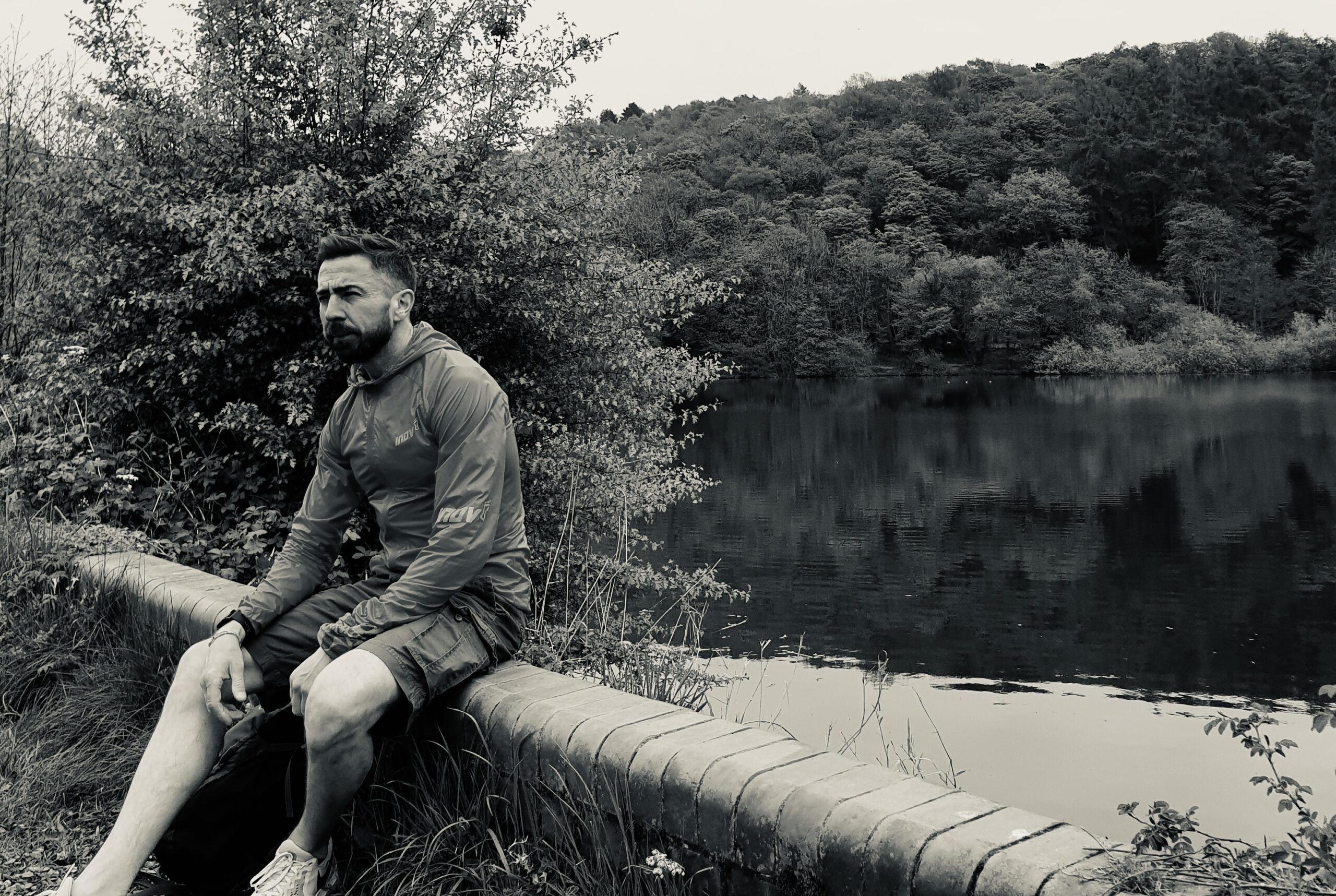
LOTS OF TRAINING - BUT NO
REAL RESULTS
This chronic and sometimes debilitating approach, demanded I spend huge amounts of time on my training and massively under-fuelled diet, but saw no real results. I was picking up niggling injuries all the time and frustrated that the hours I was putting in were leading to nothing. My times were getting slower, but I was working harder than ever. I’d hit the law of ‘diminishing returns’. The problem was I’d become so dependant on exercise, with running being my go-to addictive behaviour that satisfied the compulsion. Training when sick, fatigued and injured was normal for me and the stats on the GPS watch only served to increase my dependency. If I had to take a day off it left me feeling anxious and depressed, therefore I’d train twice as hard the next day and sometimes even three times a day. Crazy, I know. ‘Obsession’ was an understatement. Even if I felt tired, I’d rather suffer through an uncomfortable workout than deal with the guilt of not doing it. Instead of listening to my body and more importantly my mind, I stuck to my training schedule like glue, pushing through tiredness even when I knew it wasn’t the right thing to do, I didn’t know any better. I had this image of what an elite athlete should look like, and all I cared about was achieving that at all costs. Don’t get me wrong, the overtraining, under-recovering and eating less was never my intention, but just a false belief I had about what I thought it took become a great runner, and the amount of dedication that it takes. I thought to myself, if this keeps happening, I’ll still be doing this and making these kind of mistakes in my sixties.
"THE EGO IS THE THIEF OF JOY AND HAPPINESS COMES FROM AN EVENT WITH NO EXPECTATIONS"
I decided I was going to humble myself and not care what my pace used to be. I’ll start at eleven minute mile pace and run two miles then maybe add a mile and do a ten minute mile pace. After about a year of this I started to compete again and the results started to come. I thought I’d found the answer, then sure enough I ended up getting injured again. The problem was, I didn’t know how to be patient. I still had the mindset that I could always do a little more than my body was ready for, and this egotistical attitude was leaving me overtrained and fatigued. You see it was my ego that made me overtrain. I had this previous identity I was trying to live up to, all in the pursuit of optimal health and fitness and actually being concerned what others thought.
REMEMBER: YOU ARE AN ATHLETE
NO MATTER WHAT YOU'RE CURRENT FITNESS LEVEL
IF YOU MOVE, YOU ARE AN ATHLETE
IF YOU TRY, YOU ARE AN ATHLETE
IF YOU THINK YOU'RE AN ATHLETE, YOU ARE AN ATHLETE
IF YOU HAVE A BODY, YOU'RE AN ATHLETE
BILL BOWERMAN
INFLAMMATION AND INEVITABLE HEART PROBLEMS
Ultimately my aim is to help you avoid the mistakes I made. Maybe you used to be active back in your teens and twenties and then life takes over. I get it, people get busy, they get de-conditioned, their body changes and then they decide they want to get fit again in their thirties, forties, fifties and beyond. They end up doing more than their body is ready for, becoming obsessed and getting injured or sick and never returning to the sport again. I can testify to this with my own stint of chronic overtraining which in turn resulted in heart problems in the form of ‘Atrial Fibrillation’. Pushing my body to the max day after day had stressed my heart and created a type of abnormal heart rhythm (A-fib), which in absolute worst case scenarios can lead to heart failure or stroke. Although I thought this was unusual, it’s actually quite a common problem in long distance endurance runners.
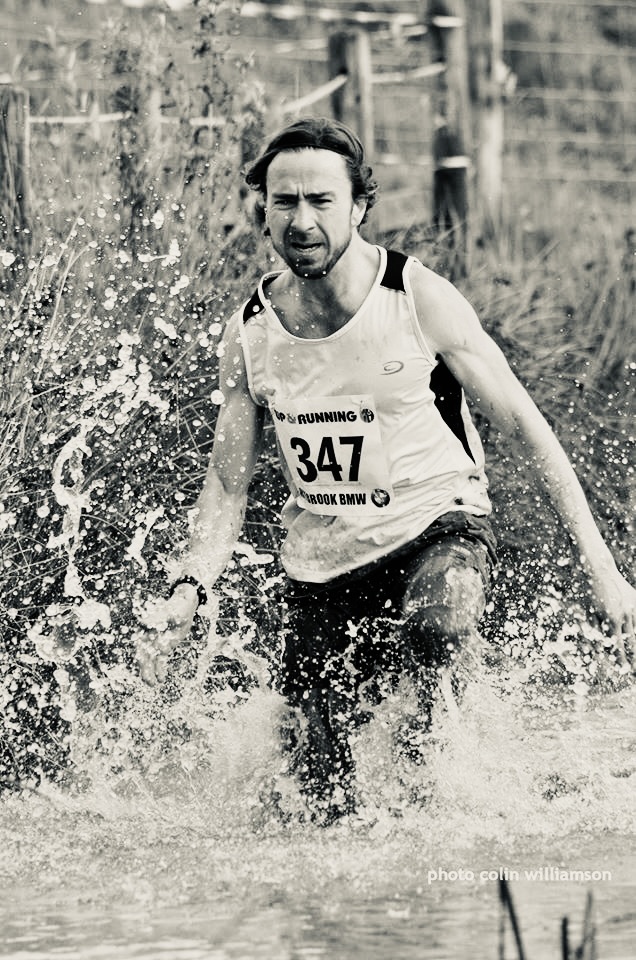
BURNOUT
This type of 'chronic overtraining' had thrown my body into crisis mode. i didn't know if i'd run a marathon or been hit by a bus.
N.O.7. HEALTH COACHING
INFLAMMATION AND INEVITABLE
AUTO-IMMUNE DISEASE
You’d think I’d learnt my lesson by now, but no, a couple of years later after reversing the A-Fib I was diagnosed with a rare ‘Autoimmune Disease’. Again, I believe this was all a result of excessive exercise, pushing too hard on the workouts and a distinct lack of recovery. Let’s be fair, anything that increases that inflammatory load, like too much exercise, will always contribute massively. On my behalf stressful exercise that I failed to recover from before exercising again, had increased my stress load and triggered the Autoimmune response. Let’s call it Inflammation overload.
I'D TRAIN 7 DAYS A WEEK - TWICE A DAY - 365 DAYS A YEAR
Now, I’m not saying that I 100% had this, BUT the diagnosis and term used today which I was totally unaware of back then is ‘Anorexia Athletica’ or ‘Sports Anorexia’, which are types of exercise and disordered eating that impacts athletes, especially in the running community where weight might be a factor in performance. If you Google both these terms, you’ll see they both have ‘Over Training’ and ‘Under Fuelling’ as their main criteria. People with ‘Anorexia Athletica’ take in a restricted number of calories despite a high level of excessive physical exercise.
"I STOPPED DRINKING ALCOHOL, ENJOYING NICE FOOD AND SOCIALISING WITH FRIENDS. ALL THIS SO I COULD DEDICATE AND PRIORITISE MY EXERCISE"
This type of exercise addiction should not be confused with other disorders mainly driven by body image. The difference being, an athlete with ‘Sports Anorexia’ compulsively over-exercises to burn fat and calories to a level that gets them at there desired racing weight but negatively affects their health. For me, It’s never been about body image, it’s always been about athletic performance and constantly striving to stay as fit as possible at all times. In other words ‘Always being ready, so I never have to get ready’.

The worry of losing fitness or performance can be so overwhelming and just serves to promote this disorder in runners. This addiction is nearly as common in men as it is in women, and can be a chronic and debilitating obsession all in the name of sports performance. I can definitely empathise with anyone who’s either been through or going through it. I believed this was what I should be doing to remain at the top of my game. I really thought that more is more, and if I could train harder than anyone else, then I’d be a better athlete. I had this false belief that I had to look a certain way, be a certain weight and eat in a disordered fashion in order to achieve my athletic goals.
"I HAD THIS OVERWHELMING GUILT THAT I
NEEDED TO RUN TO EARN MY CALORIES"
ANOREXIA ATHLETICA IS MORE COMMON IN MALE ATHLETES THAN THE COMMON MISCONCEPTION WOULD HAVE YOU BELIEVE. IT AMOUNTS TO COMPULSIVE OVERTRAINING AND CONSTANT UNDER-FUELLING ALL IN THE NAME OF ATHLETIC PERFORMANCE, ESPECIALLY IN SPORTS LIKE RUNNING WHERE WEIGHT COULD MAKE THE DIFFERENCE BETWEEN FIRST AND SECOND PLACE .
N.O.7. HEALTH COACHING
The problem is that it’s hard to diagnose because some of the symptoms are identical to overtraining. The damage normally occurs through inadequate rest for athletic recovery compared to the extreme exercise levels being performed, and to be honest, diagnosis is rare in todays culture that celebrates trim physiques and a disciplined dedication to workouts. To the outsiders, some may comment that you’re ‘dedicated’ and ‘committed’ to your craft, and this just serves to fuel the fire, pushing you to do more, work harder, eat less and keep at the top of your game. Everyone loves their ego being stroked right? And that constant validation just makes you train more. The problem is, when people give you a positive comment, without knowing it, they are championing an addiction, and if that addiction was drugs or alcohol it wouldn’t be the same kind of positive feedback as it is with exercise and training.
"YOU WOULDN'T ENCOURAGE A DRINK OR DRUGS ADDICTION BUT WITH EXERCISE ITS SOMEHOW SEEN DIFFERENTLY"
When the feedback is really positive, and the results start to come, it makes it even harder to step away from it. The hardest thing for me being, once I’d got it into my head that I needed to be lighter and faster (because as is the case with an initial reduction in fuelling for energy, that it leads to weight-loss, which for me gave a very short term performance boost, which by the way is TOTALLY unsustainable). It then becomes really difficult to start believing you’d be able to run any faster at a heavier weight, which I believe is a huge barrier, as you’re petrified of losing fitness or performance. I felt pressure to perform and continue to achieve the good results, and so the toxic loop repeats itself until fatigue becomes so great that I couldn’t train at all. Now, I’m not preaching as I’ve made these mistakes myself, but it’s about recognising that exercising to this extreme is not actually ‘Health or Fitness’ at all. The reality is, your performance only goes up once you start fuelling better, and will continue to go down if you stay on this path. The validation from others is your identity and once you’re addicted, its hard to give up.
"I HAVE A THERAPIST CALLED NATURE.
AND NATURE ITSELF IS THE BEST PHYSICIAN"
- HIPPOCRATES

"SOME DAYS I WAS SO HUNGRY I'D EAT SO MUCH I, FELT COMPELLED TO BURN IT OFF WITH COPIOUS AMOUNTS OF EXERCISE - THIS WAS MY IDEA OF A PURGE"
I’ve been there, got the t-shirt and come out the other side in a much healthier place, so try not to despair, there is a way through. It all started off with an innocent approach to keeping myself in physically tip top shape, but when the under-fuelling served to help this, it spirals downwards. However this way of looking at my physical appearance was like comparing myself to a statue. The problem is, a statue doesn’t move, it just stands there and looks good, that was never my intention. I was all about performance, how I moved, how fast I could be, how strong I could be, all the things a statue doesn’t do. I had energy, creativity and movement and realised that makes me a machine not a fucking statue.
.... AND THEN CAME THE EPIPHANY
Neil O'Hanlon
Or call it a moment of clarity. I threw out everything I thought I knew about running. I was early thirties overtrained, under-fuelled and stagnant. Instead of getting better I was getting worse and my recovery had gone out of the window. The enthusiasm I used to have had gone. Running just wasn’t fun anymore, it was a chore I felt compelled to do. I had no energy, I was constantly tired and felt the cold like a pensioner. The only things I thought about constantly and obsessively was running and food, I was fucking miserable. Then one day I looked in the mirror. I was shocked. I looked older than my years. There was visible indentations in my face where the gauntness had set in and I’d lost valuable muscle mass. To be frank I looked bloody awful, but I still felt compelled to train, it was now a drug that was manifesting into a fully blown problem. However, I was in total denial obviously.
"THE VEHICLE I AM DRIVING TODAY IS NOT THE VEHICLE I DROVE 20 YEARS AGO"
My knowledge and self awareness was lacking, and all the bullshit generic plans I ended up following were leading me down a dark rabbit hole of misinformation. I realised I had to stop thinking with reference to the past and start thinking like a thirty year old who was weak, de-conditioned and sick, and ask myself ‘what is this body I’m in right now’? ‘How does it work compared to the body I had in my twenties?’
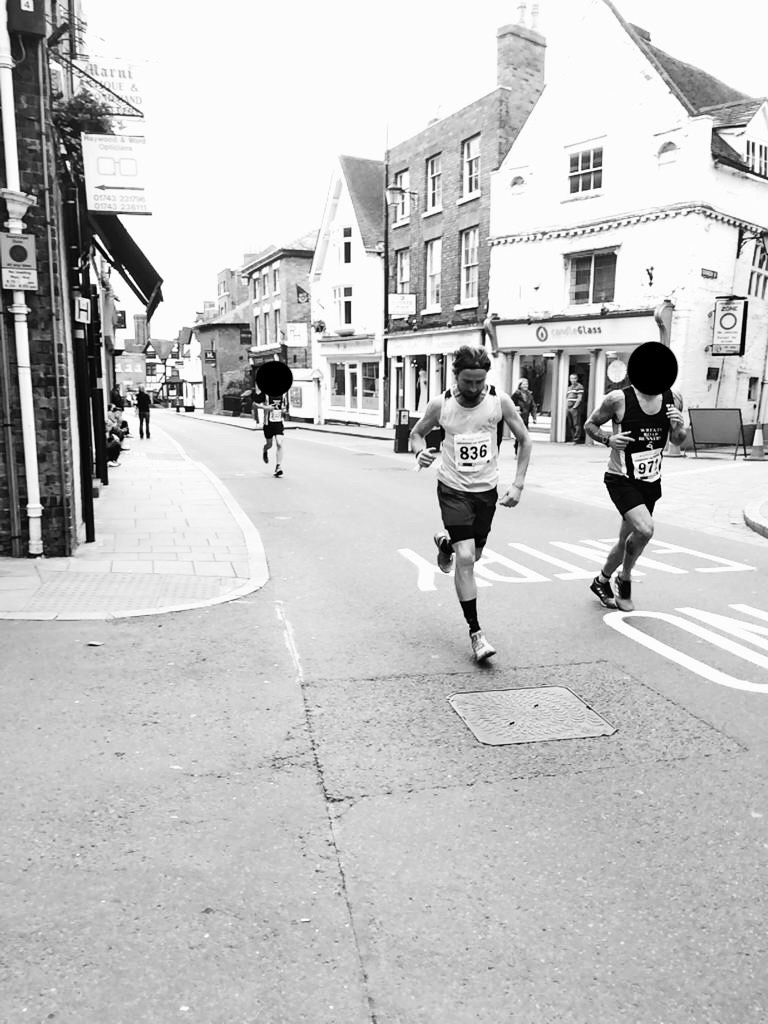
"WE FALL, WE BREAK, WE FAIL, BUT THEN WE RISE, RECOVER AND OVERCOME"
I had to switch from thinking like a statue to thinking like a machine, and machines don’t run off nothing. Machines run off fuel, but the correct fuel and enough of it. Let’s face it, high performance cars don’t go very far if you don’t look after them. You need to change the oil regularly, keep the water topped up, change the tyres and put the best fuel you can afford in to it. The machine has a job to perform, and if there’s nothing in the tank it ain’t going very far. This made total sense to me, as my performance was diminishing, and It seemed I was trying to run a racehorse on fresh air. I realised then, that if I wanted to start improving and winning, I had to take care of the machine as this was the only vehicle that was going to get me there.
"A HIGH PERFORMANCE MACHINE NEEDS QUALITY FUEL. IT NEEDS TO BE RECHARGED REGULARLY. IT NEEDS SERVICING MORE OFTEN TO MAKE SURE ALL THE PARTS ARE WORKING IN UNISON TOGETHER, AND AFTER A HARD AMOUNT OF WORK IT NEEDS TO COOL DOWN, REST AND RECOVER"
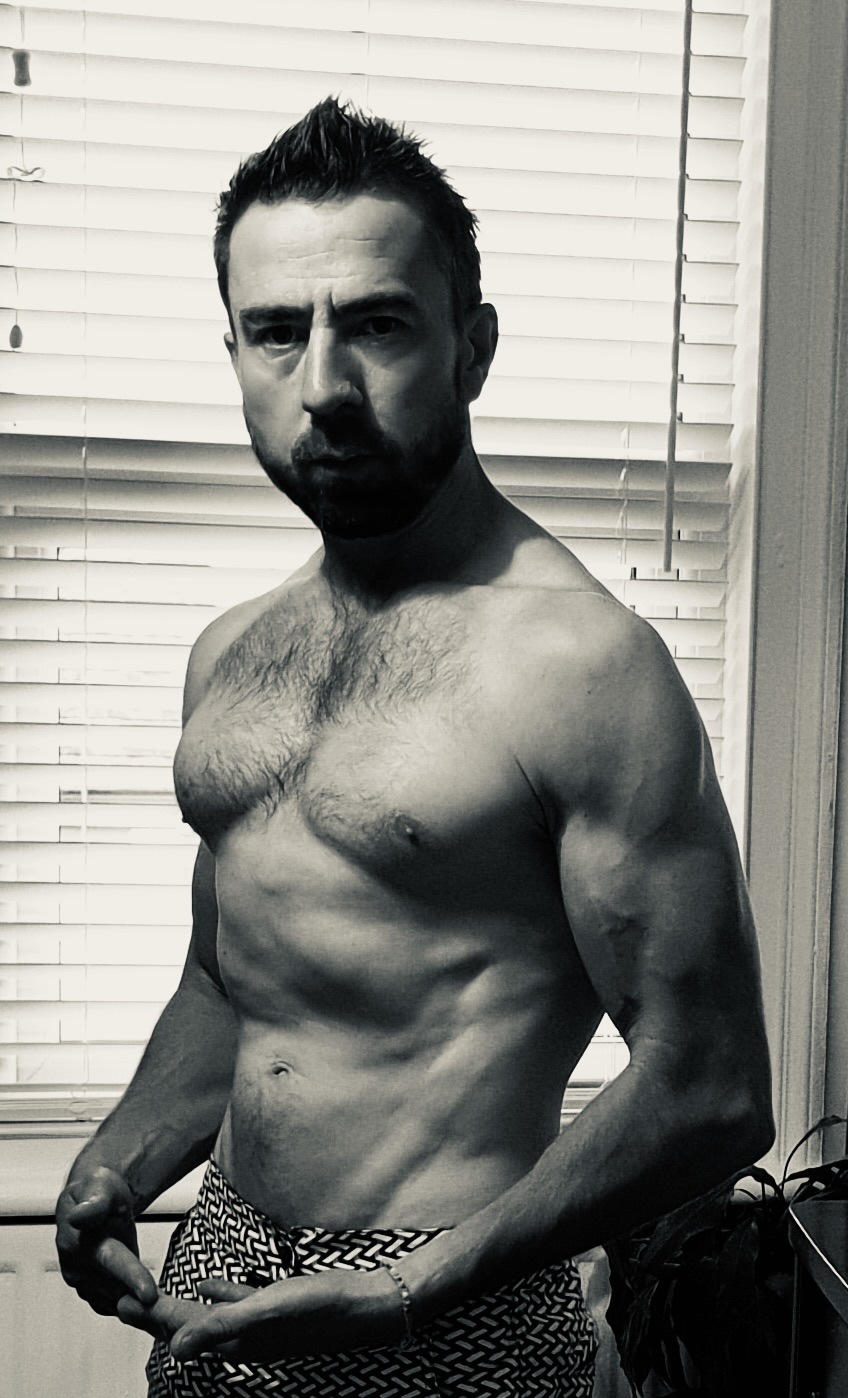
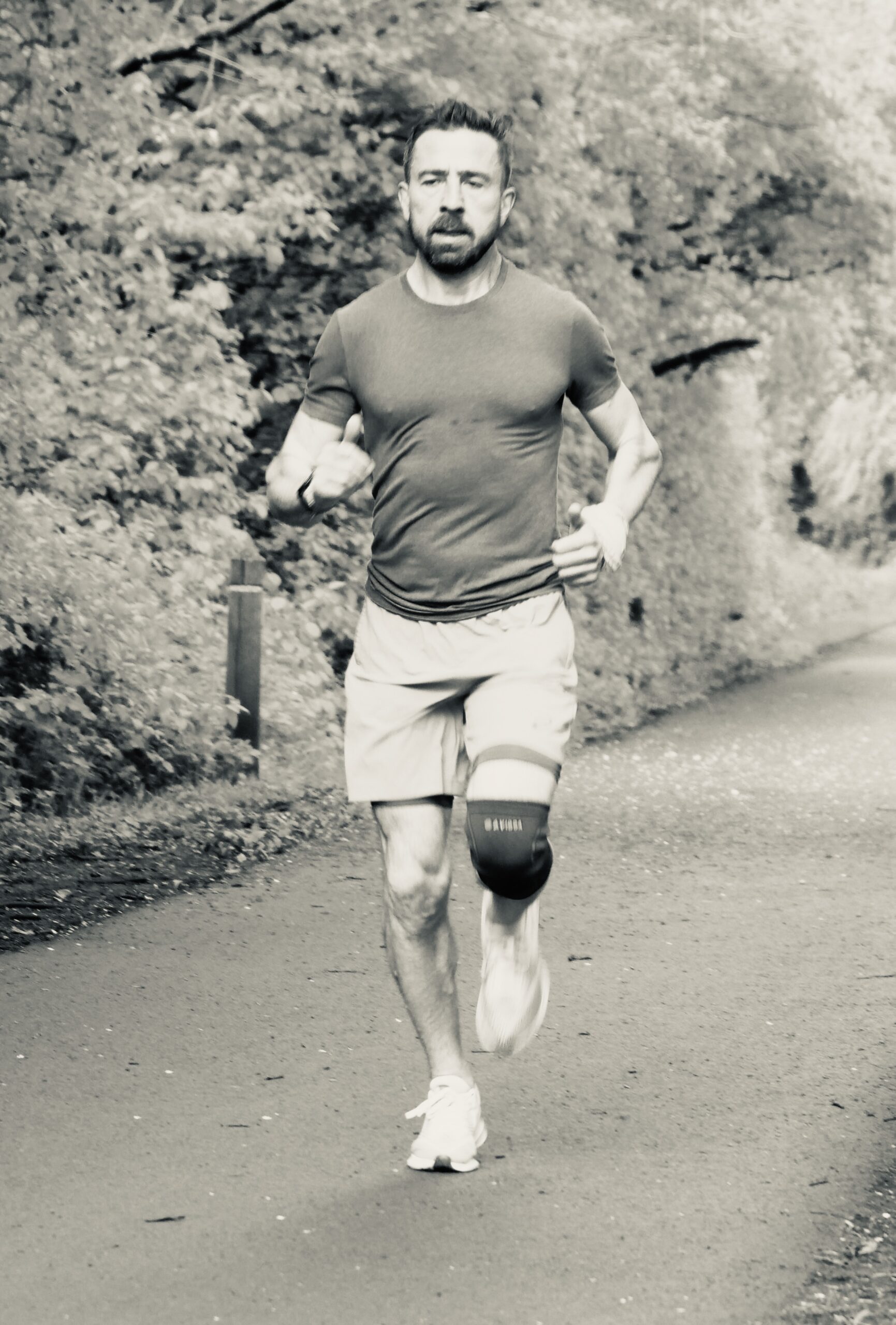
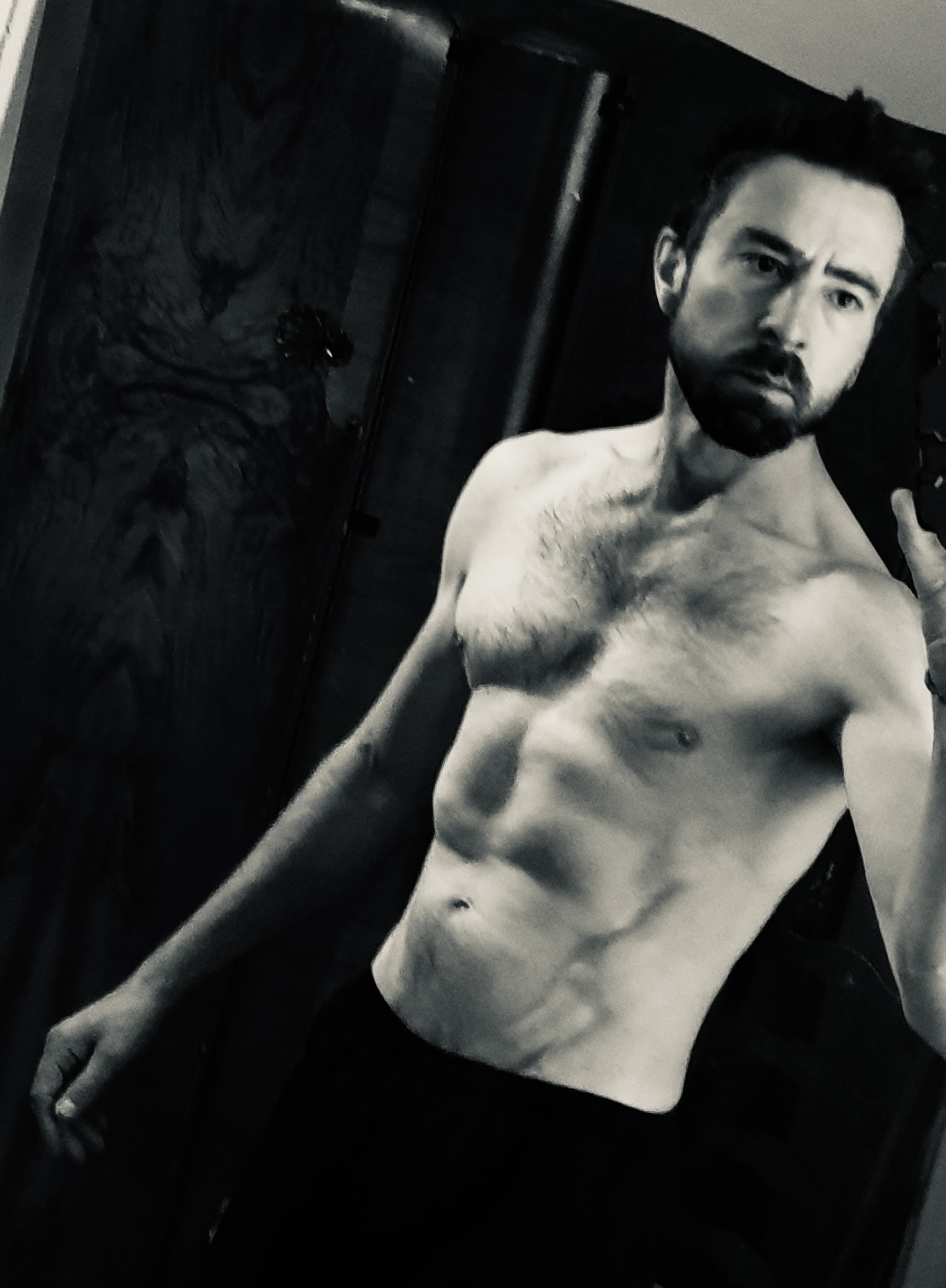
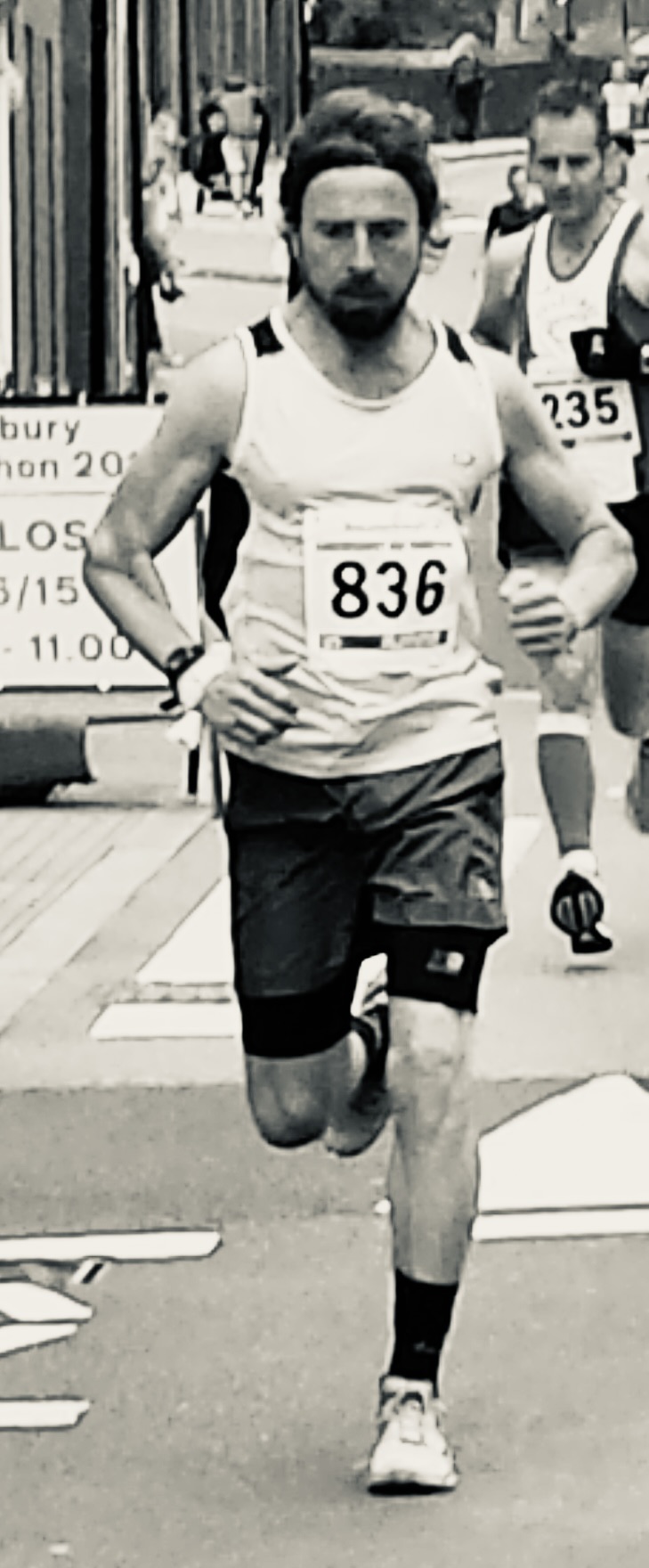
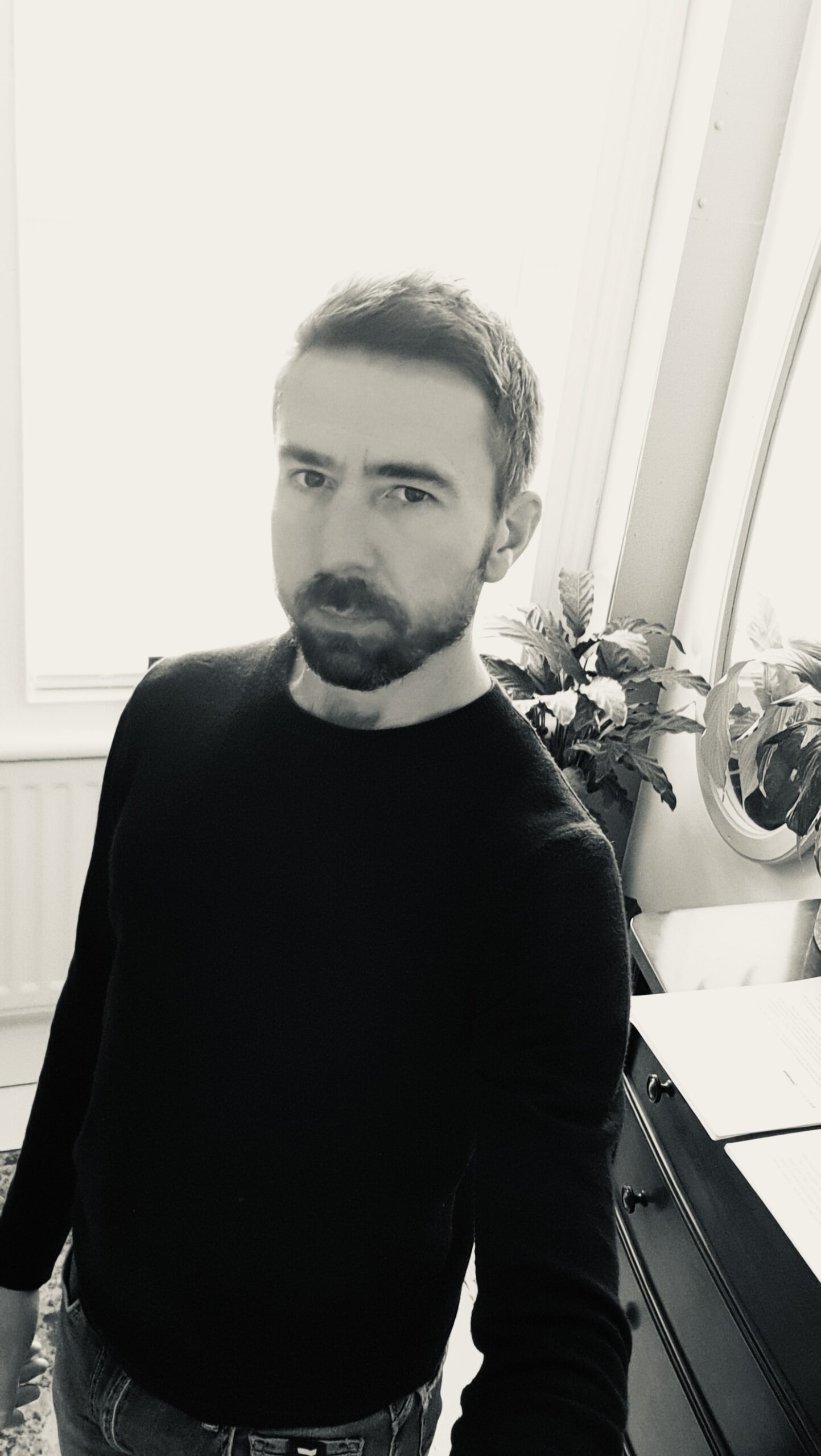
I now treat my body as an older vehicle. It needs more servicing, it needs the right fuel and hydration, it can’t be red lined all the time, and if I want it to go on for years and years to come, I need to look after it starting from the engine out. I had to learn to be patient, slow down and earn the speed I really wanted. I thought back to my past life as a competent runner, where I would religiously do three hard workouts a week, now I had to RESET and realise, I can’t do three hard workouts a week without becoming burnt-out or sick , I can do one, maybe two without becoming chronically fatigued, but more importantly being able to recover properly.
“YOU DONT GET STRONGER WHEN YOU WORKOUT, YOU GET STRONGER WHEN YOU RECOVER. THIS IS CALLED SUPER – COMPENSATION”
The patience paid off. The upshot of this being, I am now fitter than I used to be and at the age of forty six, but I had to learn the hard way and be smarter with my training. I’m now trying to promote this message to show that you can return to fitness in a much more balanced way, and you can do it in a way that doesn’t have to be disordered.
"I CHANGED MY MINDSET TO 'LETS NOT LOOK AT BODY IMAGE, BUT LET'S SEE WHAT MY BODY CAN DO.
WHAT IS MY BODY NOW CAPABLE OF?"
Can I energise my body so well that I can work it harder but recover quicker. Can I be fully healthy and still improve and perform as needed. I never worry about the aesthetics of my body anymore, I am more concerned with how strong it is, how fast I could run right now, could I hike that hill without gasping for air, and this changes everything. This allows me to go from point A to point B without just sitting there with my desired body image being useless and unhealthy.
"OVERTRAINING, IS WASTED TRAINING.
REST IS ALL PART OF THE PLAN"
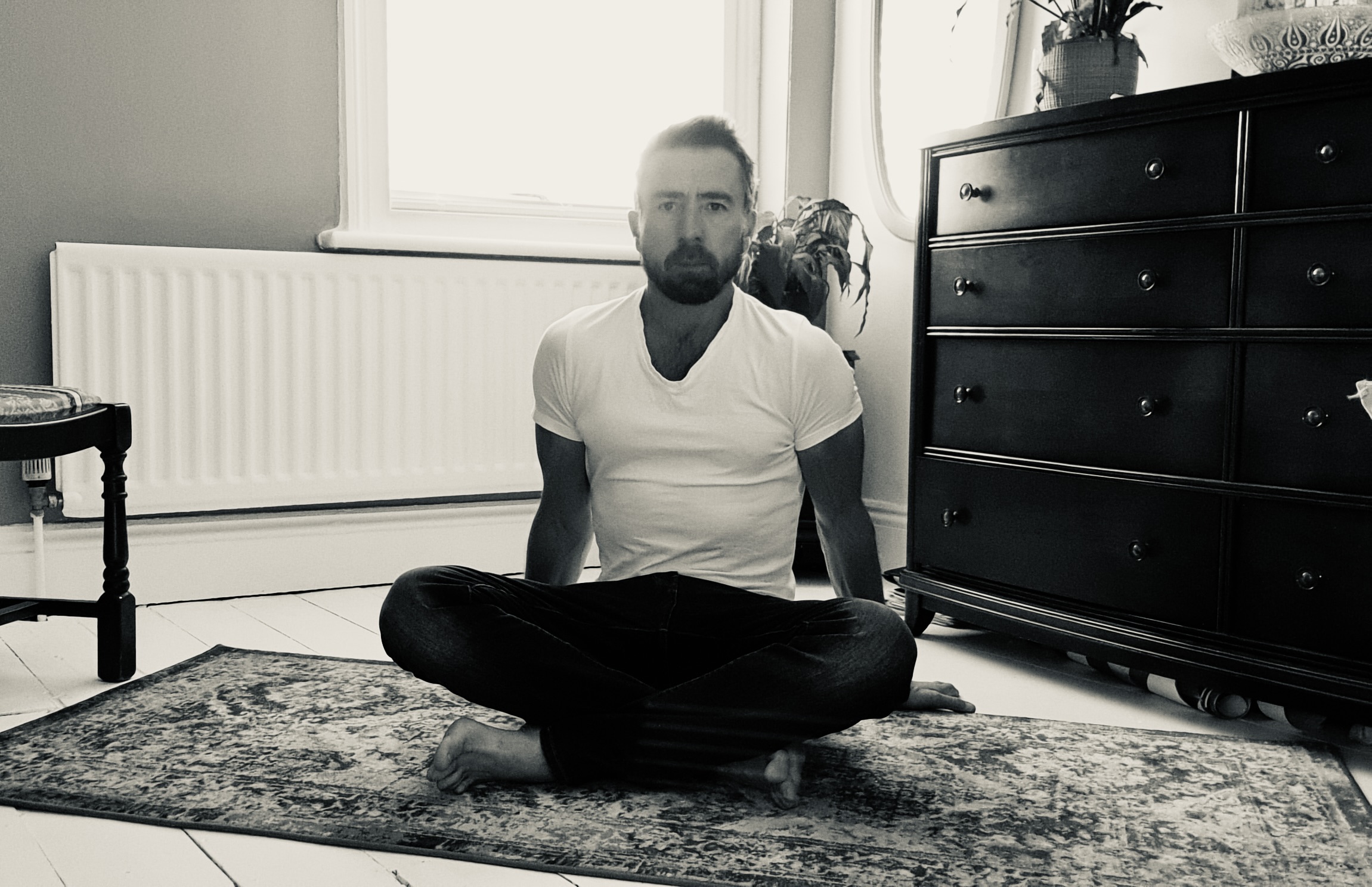
"I USED TO THINK THAT BEING LEAN AND TONED MEANT BEING ACCEPTED, AND THATS JUST BULLSHIT. NOBODY GIVES A FUCK, THE ONLY PERSON THAT NEEDS TO ACCEPT YOU, IS YOU"
Neil O'Hanlon
The fact is you deserve acceptance because you do. You don’t need to make a quid, win a medal or even win a race. You don’t need to look a specific type of way, do a specific type of thing. Yes I still want to improve, I am still allowed to get better but i don’t need that constant validation to be successful. This was the change I needed and the results are still apparent today.
STRENGTH TRAINING - BIOMECHANICS AND FORM - SIMPLIFIED
The constant injuries I endured through sheer excessive volume, lack of structure and accountability, meant I needed multiple trips to the physio. This in turn helped me understand the role of the muscles used in running, and where my problems lay. It taught me that my hamstrings and glutes were weak, and this was causing injury after injury. I needed to learn how to strengthen them and work on that to start with. Then I studied my form, I started doing drills, I researched biomechanics, efficiency, plyometrics and strength training. The strength training was such a major part of the whole puzzle, and I now feel it’s equally as important as the cardio in order to create a whole, well rounded athlete. However, the fact is I’m a distance runner, so I don’t want a massive chest or lats like a manta ray. I just need to be toned and strong with functional strength for life. I looked at my running shoes. I thought I knew what shoes I should run in, the magazines were promoting all the latest tech but after much trial and error I finally learned what shoes are hindering me and what shoes are enhancing my performance.
"I’M A SHROPSHIRE LAD, AND WITH SO MANY LOCAL GEMS TO EXPLORE, I’D RATHER BE OFF HIKING OR RUNNING THE TRAILS THAN THROWING WEIGHTS AROUND IN A GYM"
How things change. I now listen to my body more, it’s more of a mindful running practice, if I get a tweak, or a pain, I dial into it. It’s about being present when you’re running, feeling whats going on and then responding to it. Meditation on the run I call it. Mindless running is the complete opposite, you end up going faster than your body is ready for. I know there are people out there who have found it just as hard as I have. They talk about trying to get back into it and the mental barriers of feeling ashamed if they now have to run a fifteen minute mile when they used to be so much faster. They convince themselves that its not even worth going out for a two mile run? Why would they even put their running shoes on? I want to help people adjust those perspectives and limiting beliefs and change to the mindset of ‘lets start from the bottom and we build’, ‘and it’s going to take time but it’ll be worth it’.
"lets start from the bottom and we build, it's gonna take some time but it'll be worth it"
What if I could show you an easier and more effective way to keep in shape? A more time friendly approach that leaves you energised, and not fatigued? A method to spend less time training, and as a result get ‘Fitter, Faster, Stronger and Healthier’ than you thought possible. Just remember that age Is just a number, you are as old as you feel. Running is a sport that you can have longevity in, way into old age. That said, In the last few years using my training methods I have managed to obtain some of my own personal bests in my mid forties.
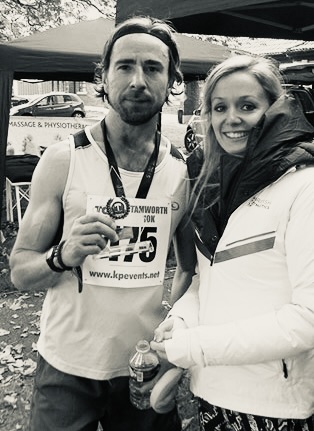
SOME RESULTS IN THE LAST 5 YEARS
- 5K – 16:52
- 10K – 34:40
- HALF MARATHON – 1:16:30
- FULL MARATHON – 2:50:27 (UNOFFICIAL)
- WREKIN RELAY COURSE RECORD – 1:13:02 (TEAM)
While my times don’t make me an Olympic Athlete, it just demonstrates that even at a later age like me in my mid 40’s you can still compete. You can get that 5K, 10K, Marathon or whatever your goal time down, and ultimately and most importantly for me, start enjoying your training again.
"ONCE YOU STOP CARING WHAT OTHERS ARE THINKING - ITS SO LIBERATING AND YOU MOVE FORWARD"
"I NOW SPEND WAY LESS TIME TRAINING, AND AS A RESULT I HAVE BECOME FITTER, FASTER, AND STRONGER THAN I’VE EVER BEEN, ALL AT THE AGE OF 46’.....
THUMBS UP TO THAT I SAY"
NEIL O’HANLON

DO IT FOR YOURSELF - RUN YOUR OWN RACE AND STAY IN YOUR OWN LANE
NEIL O'HANLON COACHING
FITNESS – NUTRITION – WELLBEING
